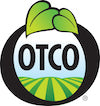Yes, Junk Food is Addictive, Study Finds

If you can’t seem to stop yourself from eating just one potato chip as the Lay’s campaign goes, it’s not entirely your fault. According to a recent study, the more processed the food is, the more it’s likely to be addictive.
Using the term addiction with food has been controversial, because it doesn’t seem to elicit the same physiological behaviors alcohol or drug addiction can. But the new findings may confirm the long-standing theory that our brains don’t know when to stop eating, particularly when we’re flooding our bodies with processed junk food.
According to the study, published by PLoS ONE, foods that are highest in refined carbohydrates or that contain added fats are more likely to cause “addictive eating.”
“Foods like pizza, chocolate, ice cream and french fries were found to be the most addictive, while foods like cucumbers, beans, and brown rice were among the least addictive,” reports Runner’s World. “The research team also found that foods with high glycemic loads were particularly likely to cause problems for those prone to addictive eating behavior.”
The researchers conducted two separate studies with more than 500 participants asked to identify foods that expressed problematic behaviors. In the first study, subjects identified foods specifically connected with “losing control” over how much they ate. And in the second study, participants rated 35 different foods on the likelihood that they could become problematic.
“The top six ‘problem’ foods in both studies were chocolate, pizza, ice cream, French fries, cookies, and chips,” reports Runner’s World. “Meanwhile, few people reported losing control over the amount of cucumbers, beans, brown rice, broccoli, water, carrots, or apples they consumed.”
"This is a first step towards identifying specific foods, and properties of foods, which can trigger this addictive response," said Nicole Avena, a professor at Icahn School of Medicine at Mount Sinai and one of the study’s co-authors, said in a statement. "This could help change the way we approach obesity treatment. It may not be a simple matter of 'cutting back' on certain foods, but rather, adopting methods used to curtail smoking, drinking and drug use.”
Leave a comment
Comments will be approved before showing up.


